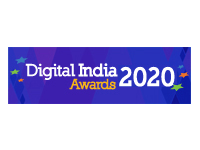Time was there when subject specialists used to migrate to jobs in libraries even when their own specialities were good enough to earn the livelihood. Perhaps, many must have done so for the sheer joy of being closer to great minds delved in their works. Today, libraries are managed by people with professional training who may be there because of some celestial influence and not necessarily driven by an inner urge to be surrounded by works of the masters. True, modern libraries need persons with proficiency in new technologies of information handling. Unfortunately, the education system followed by the majority of LIS schools in India is constrained by the lack of tools and the teachers to train their pupils and raise them to reasonable levels of competence. Nor the scions of the profession responsible for the design of curricula are themselves technology savvy. No wonder that the synergy only produces misfits to the modern technology environment.
Schools of Library and Information Science, the INSDOC and the DRTC who claim technology edge, churn grads and PGs to swell the existing stock of underemployed and unemployed professionals. A fortunate few manage to get jobs, usually, at the lowest rungs in libraries and those who do not— just drift.
What happens to those who manage to end up in the sheltered environment of libraries? A young mind at the ripe state of creativity, withers out for lack of opportunities to deliver. The technologically illiterate superiors and users dampen their enthusiasm. When the time comes, the peers treat their juniors the same way that they were treated at the early stage in their career. Alas, an unholy equilibrium perpetuates. It is difficult to get out of the quagmire, no doubt. The latent potential of the younger lot might bloom if they could only be on their own— that is, if an alternative to open employment (read as self-employment) is possible.
It is not known how many actually have succeeded away from the beaten track, but surely the likes of NV Satyanarayana (Informatics India, Bangalore) and Vasumathi Sriganesh (Q-Med Services, Mumbai) are not too many. On the other way round — there are also instances when people had left the disciplines they specialized in and set up information ventures. Makrand Waiker, a chemical engineer by background is deep in online information business (Sci-Edge Information Services, Mumbai). The Malpanis, a doctor couple from Mumbai, offer medical information services for all.
Most of conventional libraries are ill equipped to service the ever-growing demand of information users community. The librarians are bound by their archaic rules which have been designed on a platform of mistrust and suspicion. Even if they wish to, they cannot perform efficiently, in terms of response-time and quality of services. Therefore, there is a felt need in the market for new breeds of information scientists who are not tied down to rule bound institutional systems and therefore, are free to act. They can take the initiative of catering to the unsatisfied information needs of users and eke out a good living for themselves.
What really has happened? In recent years, the situation has undergone a sea change with the advent of
-
Internet — which the end-users are expected to search and surf
-
Intelligent gateways to aid searching online systems
-
Databases on CDs in stand-alone mode or on networks, which the end-users can play with
-
Sophisticated artificial intelligence aid
-
User friendly software to plug and run and
-
Open Public Access Catalogue on campus LANs and so on.
As a result, the proportion of information searches by the end users, has been growing rapidly with a consequent decline in their dependence on intermediaries like librarians. In a changed scenario, information scientists would do well by helping the end-users perform efficient searches, create virtual libraries, consolidate information collected and add value, provide services like full-text delivery at user doorsteps and so on.
Apart from playing the role of information brokers, information scientists could also start content development activities. Dwelling on the subject, one needs to recognize the strengths and weaknesses of a typical library / information scientist. They are trained in the area of systematic organization of knowledge— an area in which no other professionals can be as proficient. They may gain sufficient working knowledge of computer applications. They are well aware of the sources of information and how these could be tapped. They have the rudimentary knowledge of conducting surveys but they may not be as good at it as the statisticians or sociologists. Their language proficiency may be as good as, if not better than that of the computer scientists and the statisticians. In the final analysis, the library/information scientists have the potential to groom themselves into being good content developers.
It is not necessary that each of them has to be a Eugene Garfield. The focus may be on small, user specific, market-oriented and value added products and services. They could also start IT-enabled services like medical and legal transcriptions. They may even undertake web development jobs.
The investment requirement for information-broking and content development enterprises is not of a high order — only a few net ready PCs and Internet connections would do. If space is a premium, the operation could be a SOHO. They can pay their employees on a job rate basis that ensures higher productivity.
If it becomes difficult to muster courage, one could tag on to net start-up companies. It is no industry secret that many top executives are leaving fat jobs to strike it richer on their own. They are setting up Internet-related ventures in which they can apply their domain knowledge. They are also venturing in areas that have little to do with their past jobs. All that is really essential is a good idea and the investment of intellectual capital but certainly not physical assets alone. Get the pleasure of creating something closer to your heart and at the same time, generate wealth for yourself, your people and your country. Let us see more of Indian Info-preneurs in the new millennium.
On this optimistic note, on behalf of all of us in NISSAT, I wish you all a very happy and prosperous New Year and bountiful opportunities.
— A. Lahiri





















